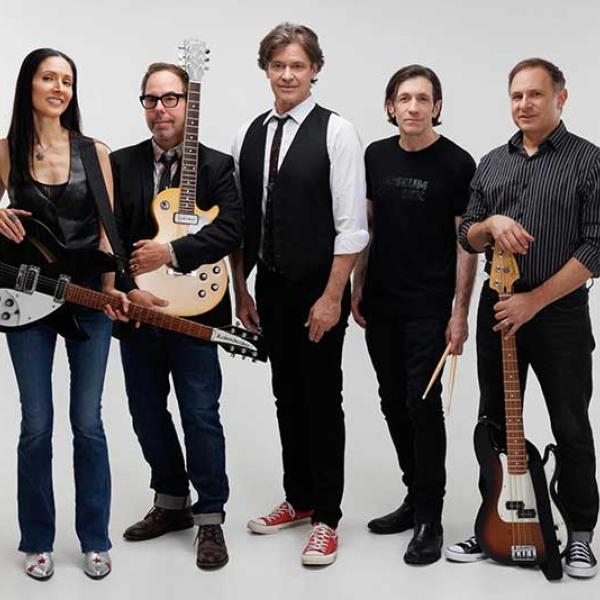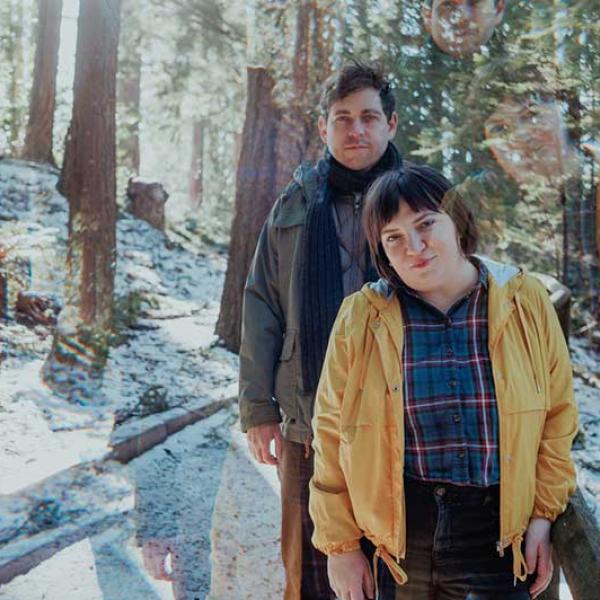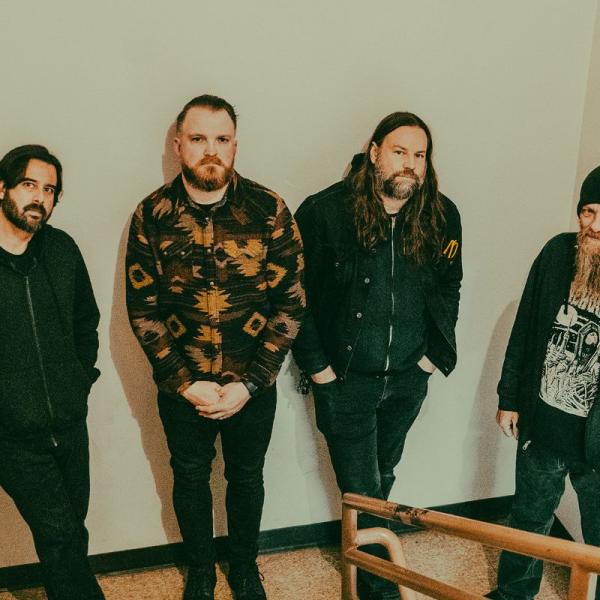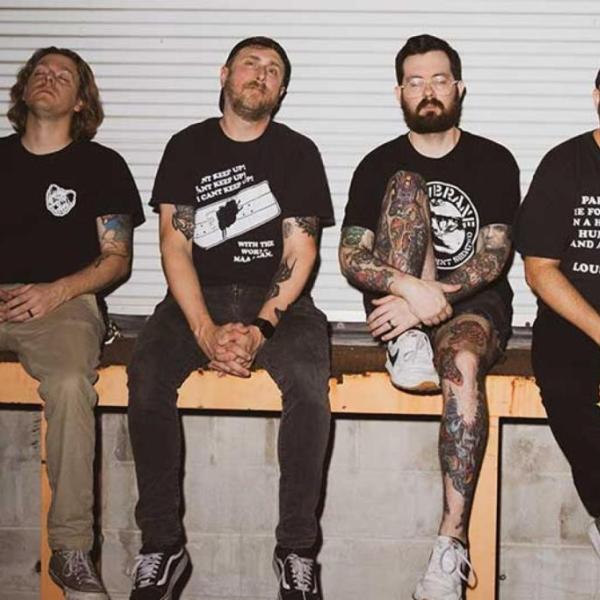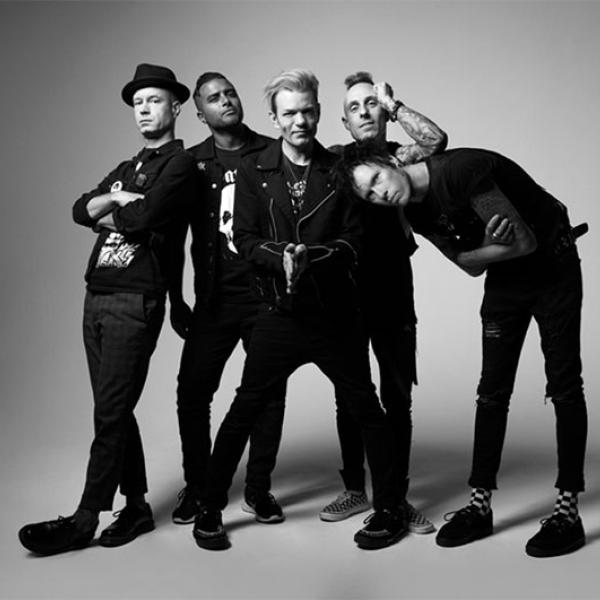Features
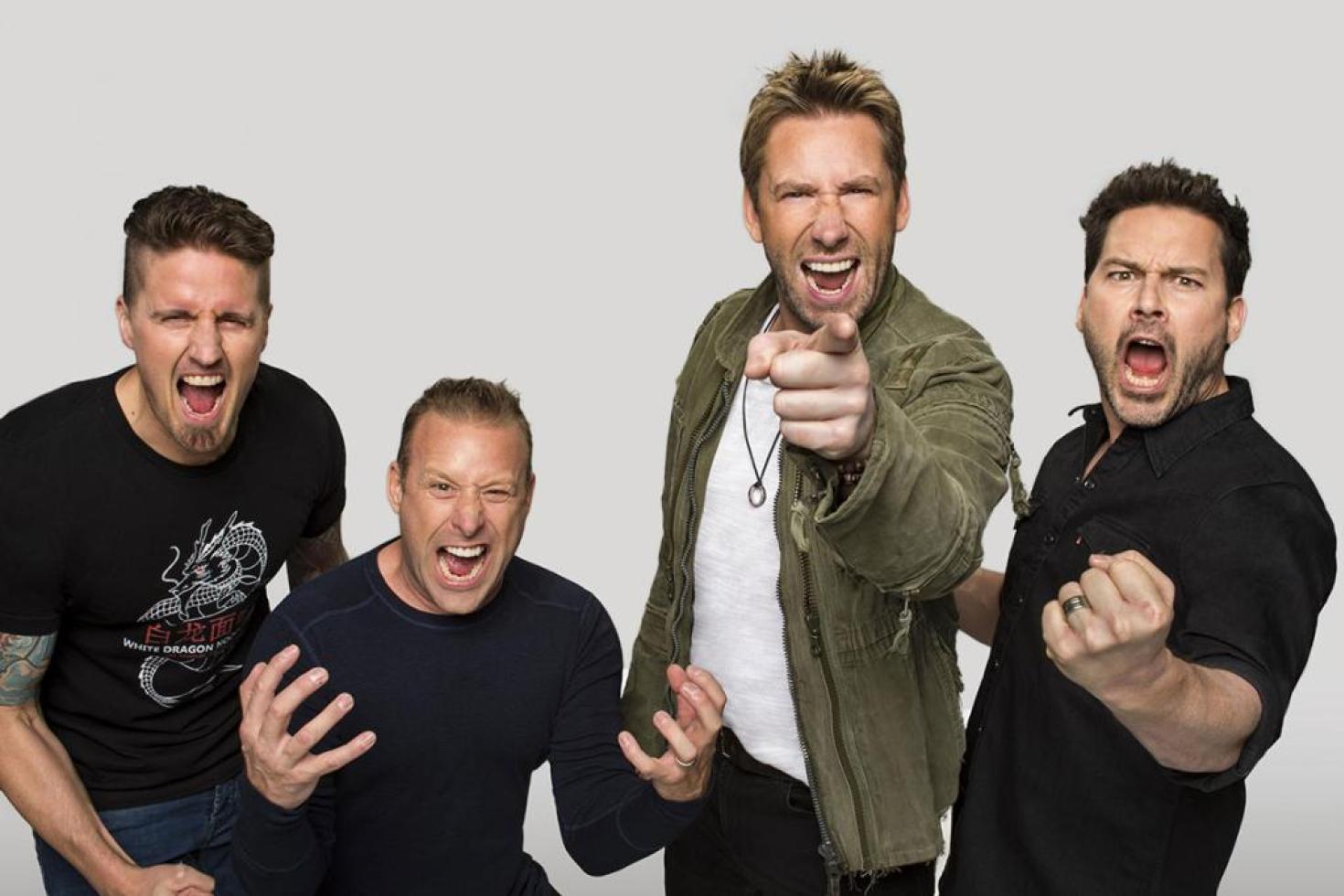
Diamond certified multi-platinum selling rock band Nickelback has recently released their new album Get Rollin’, via BMG. Love them or hate them, ‘Get Rollin’ is already the band’s 10th studio record and they continue to be one of the most succesful rock bands around. So when we got the chance to jump on a Zoom call with bassist Mike Kroeger, we of course said yes. Read on to see what he had to tell us about the new album, being in a rock band in the age of TikTok and much more.
PRT: Thanks for taking the time to talk to me today!
Mike: Of course. Happy to. I remember a time when no matter what we did, we couldn't get an interview with anyone. So, I appreciate everyone still, and I'm very, very happy to talk to everyone that I can because I pointedly remember how hard it was to in the very beginning. Nobody cares when they don't know who you are.
PRT: So, ‘Get Rollin', the first new album in five years. That is the longest in between Nickelback albums ever. Is that because of COVID or was there another reason?
Mike: This is only because of COVID. If you look at the gaps between our albums, it's typically three years. You can easily extrapolate that those extra two years were due to the restrictions and the inability of us to gather, and of course, the inability to tour. When it looked like the earth was going to stop spinning, it became really obvious that we weren't going anywhere.
We decided to just take a more observational role. Instead of trying to jump in, make an album and just jam it into whatever the world was at that time, we wanted to see what it means to be a rock band now. Can we release music? Can we go on tour? And the answer to both was no. Especially the touring part wasn't possible. Then, when it looked like the earth was going to open up again, as it has steadily in the last year, we went into the studio. It was about this time last year that we started to look at what we had to work with on this album.
PRT: ‘Get Rollin' is album number 10 for you guys. Was that in the back of your mind, like ‘we have to make this a special one’, or was it just business as usual and make the best album possible?
Mike: There is kind of a joke in our group about how with every album, we've always had somebody say, "This is the most important album of your career." Every album. And at first, that can be perceived as kind of a hollow cliche, but then you realize that it’s actually true. Every album is the most important album of your career. Because once it's out there, it's permanent, and what you put out there is the final version of what people get. You don't get to bring it all back and change. This is it. So we always try to make the best album we're capable of making.
You used the term business as usual. I suppose it is business as usual to put the best foot forward. There's never been a time when we said, "Well, fuck it. Just throw it together, whatever”. I'm sure there's been people that we've worked with who would've preferred that we were faster or maybe reached our deadlines more readily, but we've always had this mentality in our group that you can have a mediocre album on time or you can have a great album when it's finished, and everybody always acquiesces to the... They'll wait. Because we're not going to give them something that's not ready just to hit a timeline or a deadline.
PRT: And has that been a thing where you felt pressure from labels to release something faster?
Mike: Yeah, we've had to stretch out deadlines before. But this time we didn't have a deal with BMG until the album was already finished. So we were operating in our own timeframe. We had no input from anybody about when it should be done. It was all just up to us. It was the most extreme version of it’s ready when it's ready.
PRT: A comfortable position to be in?
Mike: Yeah, it was. Because thankfully for us, we've had such a great career to this point. We don't have to release another song. We don't have to play another tour date. We don't have to do anything that we don't want to do. It is a tremendous gift to be in that position where you can do as much or as little as you like. Our career is already measured in multiples of the years of my favorite artist like The Beatles or The Beach Boys. If we should end today, I feel like I have only gratitude. I really enjoy every note, every song, every show, every tour. It's just the greatest.
PRT: You just mentioned that during COVID you also took a look at what it means to be a traditional rock and roll band. I was wondering, with streaming and TikTok and YouTube and all those one-hit wonder that are popping up and taking off like crazy right away, how do you keep up as a traditional rock and roll band that is releasing albums rather than singles?
Mike: We have debated internally about moving from the album model to the singles or EP model, but our advisors have always told us that rock fans are album consumers. And honestly, we've been a bit resistant to that idea. But then I've realized over the course of the last several years that when my favorite bands release one or two songs, I don't fully engage until I get the whole album. So based on my own tendencies, I believe those people are right. I didn't even notice it until I really started to pay attention, but I am an album consumer as well.
Being a rock band, you have to be careful. If you try to chase trends and try to conform to the current culture by imitating it, especially being a little older like we are, it is so detectable. People can see the falseness coming from so far away. Everybody's aware of those old people who try and pretend to be young people. They see that TikTok is a financial juggernaut and try to latch onto it almost in a parasitic way, and it always will be exposed. You're not getting away with that.
We don't want that to be us, which is why we've been careful. We have played along and did a funny sea shanty version of ‘Rockstar’. It really went off on TikTok, and we still got to be authentic and true to ourselves. It's about finding authentic ways to participate in those new platforms without showing yourself as trying to chase something and behaving as someone half your age.
PRT: Which brings me to the next question. When you have been a band as long as you have, what is for you your favorite thing about writing and recording now?
Mike: I think that there's just a freedom for us now where, as I was mentioning before, we can do anything we want to. We really respect our fans and we really strive to give them what they expect, but we also know that we don't have to do anything we don't want to do. We can call our own shots. That freedom is probably the greatest thing about where we are as a group now. We don't have to record again. We don't have to tour again. We don't have to do anything again. It's really cool to be able to do a career because you want to, not because you have to.
PRT: I was wondering, when you first start a band, I guess it's all-consuming, everything revolves around the band. But when you've been around as long as you have and you're in the position that you are in, how has the part that Nickelback takes up in your life evolved?
Mike: It's funny you should mention this. I remember that when I was single and sort of dating, I've always been kind of looking for a forever mate, and luckily I found one. My wife and I, we've been together for 25 years and married for 22 years. But in that period of time, I do remember talking with girls as I met them and just said, "Listen, here's one thing you got to understand. At this point, don't ever try to make me choose between my band and yourself because you won't like the choice. You will come in second every time. My band is my most important thing." I had to make everybody aware of that, and it was clearly well received. There were some cases where it wasn't, but that's good to know because it's very much a test. If somebody fails that test, it's time for them to move on anyway because my intent was for this to go and be my life, and I wasn't going to let another person decide that for me.
PRT: If we go back a couple of years, you were indie darlings, and then you have the song ‘How You Remind Me’ blow up. Are you ever prepared for something like that?
Mike: ‘How You Remind Me’ was the most played single in the world that year. It was the biggest single song of that year in the world. I can't imagine how you could prepare somebody for that. I still don't think we understand, to be honest with you. My cousin went to Phuket in Thailand for a vacation, and she was on the beach at one of these beach bars, and they were playing our song there. She sent me a video, and I was like, "What?". There's no way to understand that there's places you've never heard of and they're listening to your song. It still blows my mind to this day.
There was a period in the beginning when ‘How You Remind Me’ really started to take off that I remember hearing, "You guys got an offer to go and play a tour in Europe," and we're like, "Holy shit. Really? We've never been to Europe, never even thought about going to Europe before, and here we are.” Then, "Hey boys, you got an offer to go on tour in Japan." And I was like, "What? How?" Australia, New Zealand. How is this possible?
I'll never forget walking out on stage in Tokyo and the lights come on and we play the first song, and I look out and there's an arena full of people and they are going nuts. They're singing along to all the words. It is very unusual, man. So, back to your question, how can you prepare for this? I still don't understand it. I'm still amazed. I'm eternally grateful, but I don't understand it.
PRT: And when a song and an album blows up like that one did, does it also come with a ton of stress? Like, how are we ever going to follow up on this?
Mike: Going back to what you said earlier, I think the term you were mentioning was one-hit wonder. It has a very negative connotation. You're talking about artists who have made hits, maybe only once, but how could that be negative? If ‘How You Remind Me’ was our only hit, I would still say that's a pretty positive thing. Even if we didn't replicate it again, you reached that moment where you got to touch a lot of people's lives. Plus, some of those one-hit wonders are some of the greatest songs that we have.
To get to do it again and again is a whole other thing, which is also very difficult to understand or explain. All you can do is try to be an artist that creates their best art. You go into the studio and make your best album, and then no matter how great your record label or your management is, it’s up to the people. And if they don't react, you're finished right there. It's always going to be up to the people in the end. Marketing is a very powerful thing, but unless the people react, it doesn't matter.
PRT: As for the one-hit wonder, I was referring more to the fact that they release one single and success seems to come overnight, whereas before, you're working toward releasing an album and then touring, establishing a base. It seems to happen faster now.
Mike: I really believe that those overnight successes generally speaking are many, many years in the making. Those people didn't just walk out of their basement one day and then become superstars. There was a lifetime of dedication that they've put in. Look at Oasis. The story goes that they were signed off the stage on their first show, but they had been working so hard to that point to become what was on stage that night that it wasn't just a fluke obviously. They had already decided that they were going to give their life to this, and they did that.
I think that with the advent of things like TikTok and other things, the fame cycle has become tighter. It is more immediate for sure, but for the most part, these are people that have decided to give their life to this thing and they're fully committed.
PRT: I see that we don't have a lot of time left. So, one last question that I wanted to ask, maybe a dumb one. When you start playing in a band, singing, playing the guitar, playing the drums, they feel like more obvious choices than playing the bass. So, I was wondering what made you decide to pick up the bass?
Mike: Our mother was and still is a trained dancer instructor. So there's music there. And growing up, Chad and I spent a lot of time with our grandparents and my grandmother was a drummer. She played in a band with my grandfather and some other people. He played the bass guitar. So there was always music around us. I spent a lot of time listening to music on my own with headphones, probably doing irreparable damage to my ears. So I loved listening to it, but I never was listening to music going, "I'm going to do that. That's what I want to do." It made me feel. In my opinion, that's what music is supposed to do. It's supposed to make you feel without thinking. It's supposed to just hit you in a way that you have a visceral, emotional reaction. And I still do to this day. It moves me in almost a physical way.
But then when Chad was 13 and I was 15 years old, he decided he wanted to try playing guitar. I tried playing guitar too at the same time, and it was okay. I love the sound of the guitar. Some of my favorite bands are guitar bands. But I just didn't really feel it. And then I picked up the bass guitar that my grandfather played and I can't explain it to you. It's just something about how the instrument reverberates through the body. I just felt it immediately. I felt it but I didn't know how to do it in the beginning, of course. Nobody does.
But as I learned little things, I realized that I really felt this at a deep level. I did, and I still do. I just love playing the bass guitar. The difference between a good bass player and a great bass player is feel. If it isn't a part of your soul, people can tell. It is something that is felt more than understood. I've since tried playing drums, I've tried playing guitar, I've tried keys, all kinds of shit. And honestly, there's nothing that's the same for me.
PRT: I also saw an interview with you where you talked about how being a bass player in a band that doesn’t sing, is the closest you can get to being in the witness protection program.
Mike: (laughs) Yeah. If you’re the bass player in a band and you're not singing or if you're this very out front bass player like Flea or Les Claypool. If you just play the bass and sing the occasional backgrounds and stay out of the way of the cameras, you can be effectively anonymous. I'm very happy with that. I would prefer to only have people know who I am when I'm on stage. Otherwise, I want to be the gray man. I don't want to be noticed or recognized by anybody, really. It doesn't bother me when it happens, but that happens fairly rarely. I think if it happened a lot, I wouldn't like it. Now, I get what I would consider to be the best of all worlds. I get to be famous on stage and anonymous off stage. It's perfect for me.


